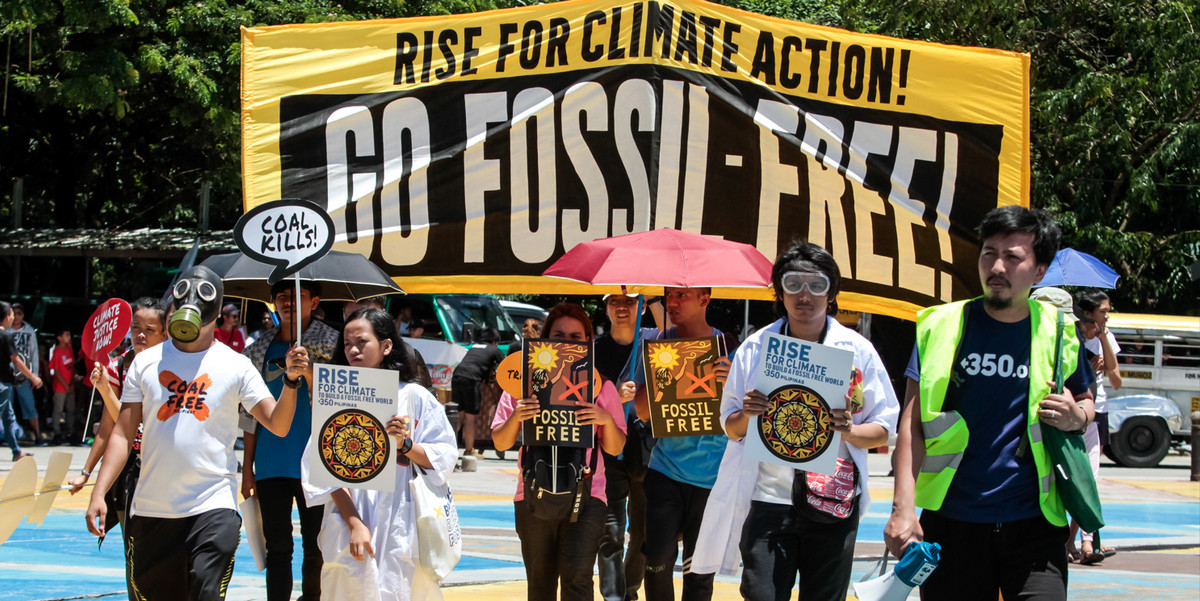CIDSE, together with over 200 partners released an open letter asking the Secretariat of the United Nations Framework Convention on Climate Change (UNFCCC) and State parties to put human rights at the centre of the energy transition at COP27. The signatories form a broad and diverse coalition, from those concerned about the human rights impacts of extraction of transition minerals and of renewable energy projects, to those protecting human rights defenders that are facing attacks, but all of whom are concerned about the lack of attention on human rights within the current climate conversation. The signatories include Indigenous Peoples’ rights, women’s rights, labour rights, land rights, environmental, climate, and human rights organizations and movements from all regions.
STATEMENT
“We represent a wide range of movements and organizations, working for climate justice, human rights, labour rights, and corporate accountability. The profit driven extractive model which has underpinned the global energy model has not provided the economic benefits or development promised to many countries, and has entrenched existing inequalities, including around access to and ownership of energy, and gender inequality. It must be transformed. COP27 offers a defining moment to accelerate the transition away from fossil fuels and set the compass resolutely towards the energy transition. Meeting this immense challenge requires swift and coordinated global action, as well as redirection of private and public investments to renewable energy projects.
Disregarding the rights of local communities and Indigenous populations in the race to a decarbonized economy by 2050, in particular those impacted by the boom in the extraction of the minerals needed for the transition, and by land-intensive renewable energy projects, is short-sighted. It will result in numerous human rights violations and a failure of the responsibility of governments to protect human rights as established by the United Nations Guiding Principles on Business and Human Rights. It is already causing widespread abuse of land, water, and Indigenous Peoples’ rights: 495 allegations of human rights abuses were tracked so far in relation to transition minerals mining since 2010. But it will also continue to fuel opposition, conflict, and result in delays to both projects and achieving our global climate and Sustainable Development Goals (SDG) targets. Such conflict has already resulted in at least 369 attacks on human rights, labour and environmental defenders around the world since 2015 including 98 killings, related to renewable energy projects, and 148 attacks, among them 13 killings, related to transition minerals mining.
The limits of non-legislative, market-based approaches to improve corporate respect for human rights are also clear: 78% of 1000 most influential companies, across 68 countries and 26 industries, scored zero on all indicators measuring their voluntary steps towards human rights due diligence. Mandatory human rights due diligence is necessary to close the accountability gap.
For real progress to be made at COP27, world leaders need to actively promote responsible renewable energy by:
- Recognizing that human rights are central to the climate response. The profit driven extractive model has entrenched and exacerbated inequality, and contributed to driving conflict, environmental damage, attacks on communities and defenders, while simultaneously playing a significant role in emissions. An energy transition based on this model will fail. Governments must position human rights at the core of their climate plans for it to be successful and sustainable long term. This means that alongside commitments to expand renewable energy generation, Nationally Determined Contributions (NDCs) need to include specific provisions to ensure that land rights, especially women’s land rights, are protected, Indigenous Peoples’ Rights, rooted in respect for their right to self-determination, are upheld, and project benefits are equitably shared with marginalized and directly impacted communities;
- Adopting new ambitious green policy and regulatory frameworks that protect workers, local communities and Indigenous Peoples while directing foreign and domestic investment flows intoresponsible renewable energy infrastructure: specific consideration should be given to upholding Indigenous Peoples’ right to Free, Prior and Informed Consent (FPIC) as well as the individual and collective rights of customary land rights holders; and to the safety of human rights, labour and environmental defenders;
- Legislating to put an end to the most egregious corporate abuses through the introduction of gender responsive mandatory human rights, environmental and climate due diligence;
- Supporting an equitable energy transition by ensuring that renewable energy development results in equal access to clean, reliable, and affordable energy for their populations, including for female-headed households;
- Adopting policies to prioritise reduced energy and material demands by wealthier countries as well as increased efficiency, responsible product design and the recycling of minerals to minimise the environmental and human impacts of mining activities and move away from the extraction-to-exhaustion model of production.
In addition, we support the asks in the 2021 Declaration on Mining and the Energy Transition, including centering the human rights of Indigenous Peoples, frontline communities, and workers throughout the renewable energy value chain.
It is time to rethink how the energy transition can be used to advance our human rights agenda. A climate agenda arising from neoliberal reforms that maintain existing industrial models is opening doors to unsustainable investments and continues to see nature merely as an object of consumption or to be exploited as an economic resource. It expects communities that contributed the least to the climate crisis to bear the brunt of the transition, without benefiting from it and without being able to shape it. As such, it cannot meet the challenge of reducing greenhouse gas (GHG) emissions to meet the Paris climate commitments – it will continue to be resisted, delayed, and could ultimately backfire.”
END
Cover photo: #RiseForClimate: Manila, 350 .org (CC BY-NC-SA 2.0)

